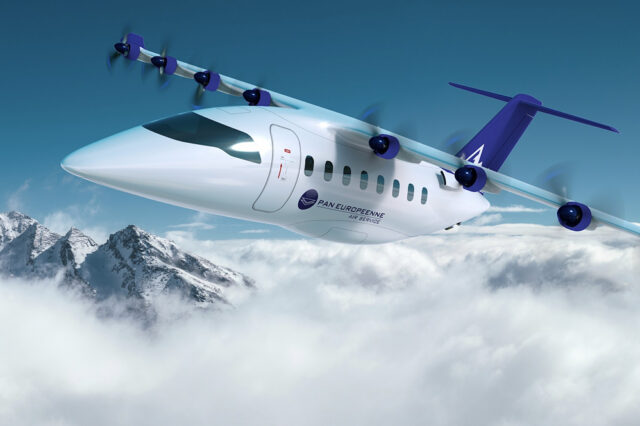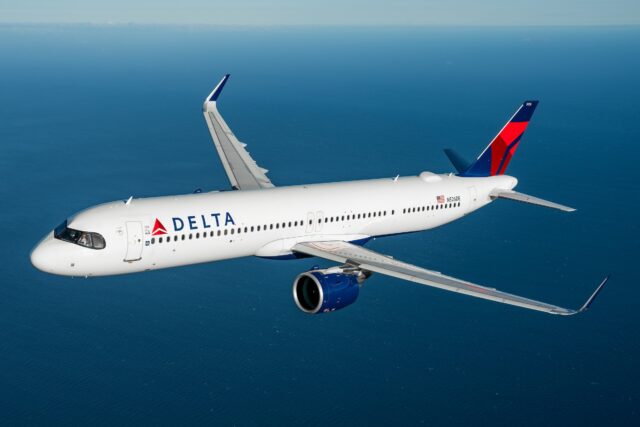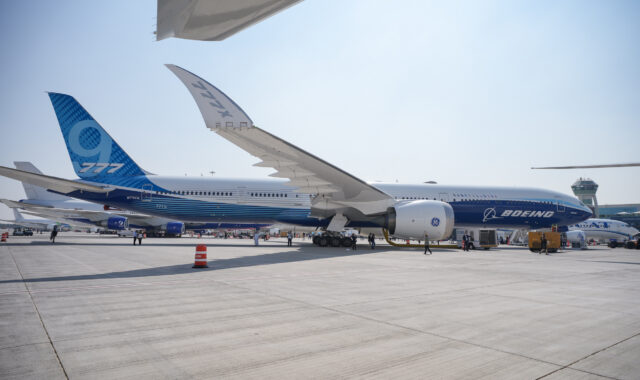The UK Space Agency has announced a new apprenticeship opportunity designed to help students secure out of this world jobs.
Apprentices in England will soon be able to boldly study where no students have studied before, thanks to a new Government-backed space engineering apprenticeship scheme with training opportunities including spacecraft manufacturing and satellite integration. The growing UK space sector aims create 30,000 new jobs in the industry over the next decade.
The Space Engineering Technician apprenticeship will launch in January 2021 and will help young people gain the technical skills needed for a career in space. The scheme follows a successful collaboration between the UK Space Agency, Airbus and the University of Leicester. Demand for places on the four-year apprenticeship are likely to be high.
The UK space sector needs engineers and technologists who understand the demands that come with working in space. This new opportunity will offer students, for the first time, the chance to focus on topics like spacecraft manufacturing; building skills in design, problem solving and testing.
New qualification will “unlock the secrets of our solar system”
Currently, apprentices training in space roles gain qualifications as general apprentices and craft apprentices. Science Minister Amanda Solloway, who launched the new apprenticeship scheme recently visited Airbus in Stevenage where she met apprentices working on satellite panel manufacturing, as well as those developing techniques to be used by the Rosalind Franklin the Mars sample fetch rover.
Solloway said: “This new qualification is an incredible opportunity for young people which will equip them with the vital skills they need to help unlock the secrets of our solar system.”
“The UK’s space industry is booming, and these new apprentices will become the next generation of engineers that will help us achieve our country’s space ambitions.”
Apprenticeship paves way for degree-level qualifications
The Space Engineering Technician apprenticeship is the first to be recognised by the Institute for Apprenticeships and Technical Education (IfATE) and approved by The Department of Education. The first cohort of students is expected to start their training from January 2021.
The establishment of the level 4 apprenticeship has paved the way for the development of a degree equivalent (level 6) space engineering diploma which is expected to be available to students from next September. The University of Leicester has played an integral role in designing the new apprenticeship, utilising expertise in space teaching and research, spanning more than 60 years.
UK at forefront of “commercial space revolution”
Dr Nigel Bannister, Associate Professor in the University’s School of Physics and Astronomy, said: “From large multinationals to small enterprises, companies in the UK are at the forefront of the commercial space revolution – it is therefore essential that the right training is offered for future recruits into the industry.”
“The international space sector is undergoing a major transformation as space becomes more accessible, and this new standard enables employers to recruit people with the skills needed to grow their business and ensure their workforce is trained in the latest technologies and techniques.”
“For apprentices, it represents a new route into a fantastically exciting sector – one which we are becoming ever more reliant upon in our daily lives. I hope it will also Airbus, which has been employing apprentices in space manufacturing for more than 30 years and has trained more than 120 apprentices over the last nine years using the general standards, can now use the more focused standard to ensure they are training more rigorously for their future workforce.”
“New route into space”
Richard Franklin, Managing Director of Airbus Defence and Space in the UK said: “Four years ago, we looked at how we could design and develop a space technician qualification that would enable students to gain specific engineering skills in space manufacturing.”
“Working in partnership with the UK Space Agency and the University of Leicester we have created the Space Engineering Technician apprenticeship. This is an exciting new route into space and helps the Government achieve its ambitions – whether that’s the next mission to Mars or helping to build Earth observation satellites to monitor climate change.”
BAE Systems PLC, Thales Alenia Space UK, Nammo Westcott Ltd, Reaction Engines Ltd, STFC RAL Space, United Kingdom Atomic Energy Authority and Oxford Space Systems have supported the process to allow over 900 space sector companies access to the qualification.
Jennifer Coupland, chief executive at the Institute for Apprenticeships and Technical Education said: “We’re delighted to achieve lift-off with this new apprenticeship. It’s incredibly exciting to think apprentices will be given opportunities to develop and manufacture equipment for the space industry. They could one day work on anything from satellites monitoring climate change to spacecraft sent on missions to distant planets.”
UK space sector generates income of £14.8 bn
The UK space generates an income of £14.8 billion, employing 42,000 people and supporting a further £300 billion of economic activity through the use of satellite services. The space engineering apprenticeship will ensure we have the talent needed for the UK space industry’s continuing growth.
Specialist engineering sector connector Engenuity said the new generation of “Space Cadets” will learn how to support the development, manufacturing, assembly, integration and testing of complex, high value space hardware and ground-based equipment.
These include satellite mechanical structures, and subsystems for in-space power generation and distribution, spacecraft attitude control, thermal control, rocket propulsion, space communication, sensors, planetary landers, and associated support systems.
UK engineering: a “force for good”
Ann Watson, CEO, of Enginuity said: “Great British Engineering continues to be a powerful force for good in a world which increasingly needs hope, ingenuity and vision for a better, brighter future.Space exploration, engineering and research is a key part of the UK’s industrial strategy – which will produce direct and indirect benefits for so many of us.”
“Getting this new apprenticeship standard off the launch pad is testimony to the power of the engineering sector, Enginuity, EAL and its partners who have helped bring about this breakthrough moment – but this is just the start.”
Roy Haworth, Apprenticeship Trailblazer Group Chair said: “This has been an amazing sector-wide collaborative effort to get this project off the ground – and a testimony to the incredible experience, energy and expertise that Enginuity and EAL bestow upon it.”
Subscribe to the FINN weekly newsletter
















